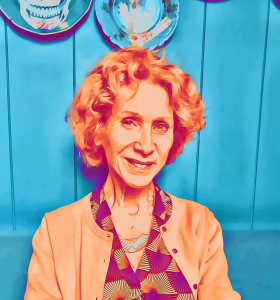188 Letter from Claude Origet de Cluzeau

Dear young colleagues,
Getting to know, through Sara Dolnicar, about the initiative of Women’s Voices in Tourism Research, I was just ever so happy to join this unprecedented project, resulting, up to now, in over 100 contributions, so rich and so different from what we usually read.
I come from France. Due to my age (in my 80s), my path in the tourism discipline could not have been straight ahead as, when I started my studies, there were no degrees in tourism at university, apart from some geographers who had started to build a few basic concepts related to tourism, such as the map and range of French ‘stations’, a municipality shaped as a resort, where tourism prevails.
I got a PhD in Economics and, by chance, I joined a government agency in charge of the development of Corsica; there, I was immediately in charge of tourism for four years. I then dedicated my whole professional life to tourism as a consultant, first in a public bank subsidiary and then in my own company. This meant over 200 missions, mostly at the request of public authorities, at the level of a small rural area, up to the level of a whole country, but also cities, regions, counties. It was always about tourism development: raise the number of visitors, get an improved tourism revenue, widen the tourism season, catch new tourists, transform a place into a tourism venue. Initially, the demand came mostly from poor areas or small beach or mountain resorts, which was a matter of pure development, often starting from scratch in terms of the tourism industry. My recommendations would tackle any field like urbanism, facilities, scenery, heritage, real estate, and law, but first of all, I always made the most careful marketing study to identify the possible clients, their needs, and their purchasing power.
But, at the beginning of the 1990s, little by little, the requests for tourism consultancy were issued by cities, even big cities like Bordeaux/France or Liege/Belgium. With this kind of consultancy, I became increasingly involved in cultural tourism and its supply and demand. Tourism resources in each country being what they are, our British colleagues were pretty much ahead of the French regarding urban tourism, and I fruitfully collaborated with some of them. At the end of the 20th century, a publisher asked me to write a book on cultural tourism, which I gladly did. And my paper for WVTR deals with this topic in the 2020s. It is a huge and boundless topic with continuous extension! At that time, I also joined several European teams in charge of pan-European topics, such as “European Capitals of Culture,” “Tourism Development in Small and Medium European Cities,” and “Productivity of Small and Medium Tourism Enterprises in Europe.”
After my first book on cultural tourism, I was requested for other books, such as Marketing of Garden Tourism. Some co-written with other authors, such as Prospects of Tourism in the 2020s, Tourism and Leisure Industries in France, Shaping Welcoming Actions in Tourism Destinations, Entrance Fees in Cultural Sites, Tourism, Culture and Development, Love and Tourism, and many other articles. I never published anything on my initiative, but only upon request. I am now on the scientific committee of a future Tourism Dictionary.
My mantra in tourism development is ‘First the market’. Considering that it is the tourists who invented tourism, and they continuously do – especially the cultural tourists – the answer in terms of development relies totally on them: their profiles, their potential appetence for a destination and/or for some leisure activity, their expectations, their purchasing capacities, the dates when they can take some holidays, their accompanying persons. So, this meant finding or creating reliable data and their representative sample. In fact, each time I completed this careful market study, the mission’s ambitions and action plan were clear and easy to identify, and it was easier to make them acceptable to the locals. This is the best advice I may give to young researchers. These young researchers probably have a radar to catch the new cultural tourism trends among the young generations, and they handle them much better than I do. I now greatly regret not having the time and opportunity to investigate and tackle the profiles and motivations of those 18-30 year-old travellers who are getting so fond of city breaks and of music shows and festivals and are often neglected by tourism professionals: they are the new generation of cultural tourists. Meanwhile, niches of cultural tourists are emerging with new interests and new behaviors. Among them, some may become mainstream, while others will remain niches for the great pleasure of their inventors. So my best advice for tourism research is always to scrutinize the market, identify its components and confront them with the existing or potential supply of cultural items and events.
If I may add another recommendation to my young colleagues, it would be to tackle the notorious but often empty concept of DMO: I never got the phone number of any of them. Then who are they? It often takes time to understand each destination and how and by whom decisions are made in the field of tourism. In the most favourable cases, it is a group that gets along pretty well together. But in many cases, it is a conflicting group. In the case of an open conflict, then the action plan will necessarily please some ‘winner’, or, if it’s a silent conflict, then the final decisions will need to avoid hurting anyone so that the group may go on with no winner. Then, the advice would be to make sure of who the DMO is composed of.
With all my heartfelt wishes to the Women’s Voices in Tourism Research researchers.
Claude Origet du Cluzeau
Independent consultant in cultural tourism – France

